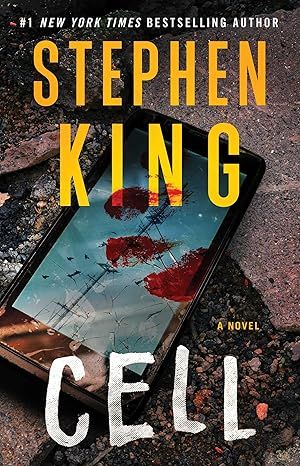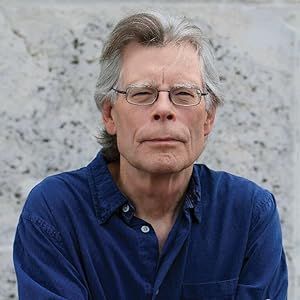Cell: A Novel
4.3 out of 5
5,196 global ratings
The next call you take could be your last in this terrifying #1 New York Times bestseller by master storyteller Stephen King!
On October 1, God is in His heaven, the stock market stands at 10,140, most of the planes are on time, and graphic artist Clayton Riddell is visiting Boston, having just landed a deal that might finally enable him to make art instead of teaching it. But all those good feelings about the future change in a hurry thanks to a devastating phenomenon that will come to be known as The Pulse.
The delivery method is a cell phone—everyone’s cell phone. Now Clay and the few desperate survivors who join him suddenly find themselves in the pitch-black night of civilization’s darkest age, surrounded by chaos, carnage, and a relentless human horde that has been reduced to its basest nature...and then begins to evolve.
There’s really no escaping this nightmare. But for Clay, an arrow points the way home to his family in Maine, and as he and his fellow refugees make their harrowing journey north, they begin to see the crude signs confirming their direction. A promise of a safe haven, perhaps, or quite possibly the deadliest trap of all…
416 pages,
Kindle
Audiobook
Hardcover
Paperback
Audio CD
First published March 27, 2023
ISBN 9781668025208
About the authors
Stephen King
Stephen King is the author of more than fifty books, all of them worldwide bestsellers. His first crime thriller featuring Bill Hodges, MR MERCEDES, won the Edgar Award for best novel and was shortlisted for the CWA Gold Dagger Award. Both MR MERCEDES and END OF WATCH received the Goodreads Choice Award for the Best Mystery and Thriller of 2014 and 2016 respectively.
King co-wrote the bestselling novel Sleeping Beauties with his son Owen King, and many of King's books have been turned into celebrated films and television series including The Shawshank Redemption, Gerald's Game and It.
King was the recipient of America's prestigious 2014 National Medal of Arts and the 2003 National Book Foundation Medal for distinguished contribution to American Letters. In 2007 he also won the Grand Master Award from the Mystery Writers of America. He lives with his wife Tabitha King in Maine.
Read more
Reviews
Kindle Customer
5
King - like
Reviewed in the United States on August 7, 2024
Verified Purchase
I'm a King fan, but have read things he's written that I didn't fall in love with. I wasn't sure about Cell when I read the summaries. It's a very good fast read with just a few characters to keep up with unlike some of his work. Try it, you'll like it.
Edwin Charles Lowe
5
Horror at its Most Frightening Best!!!!
Reviewed in the United States on January 31, 2019
Verified Purchase
Human aggression is instinctual. Humans have not evolved any ritualized aggression-inhibiting mechanisms to ensure the survival of the species. For this reason man is considered a very dangerous animal. Konrad Lorenz
Can you hear me now? Verizon
On October 1, God is in His heaven, the stock market stands at 10,140, most of the planes are on time, and Clayton Riddell, an artist from Maine, is almost bouncing up Boylston Street in Boston. "Cell" Stephen King
The world changes in a hurry. The event that survivors will refer to as "The Pulse" began at 3:03 p.m., eastern standard time, on the afternoon of October 1. The name hardly matters, in any case. What matters is the effect. The cause of the devastation is a phenomenon that will come to be known as The Pulse, and the delivery method is a cell phone. Everyone's cell phone. The opening lines of "Cell" hastens you into a violent, bloody, and deadly dangerous journey of four survivors of a world apocolypse that is unfolding around them, as rapidly as modern commucantion instruments have made possible. How often have you noticed people around you answering their cell phone, on the sidewalk, in a department or grocery store, or in the car? Now imagine, if you will, that the automatic process of answering the tone of your cell phone, removes your humanity, leaving only the basic drives of aggression, rage, and a murderous desire to attack, with bare hands and teeth, and kill every unaffected person you see, with your bare hand and teeth. Clay and his band of desperate survivors, Alice, Tom, and Jorden, find themselves in the black night of civilization's darkest age, a world of chaos, carnage, and a human horde that is reduced to its bassist nature...and then the horde begins to evolve in ways that make them even more frightening. This is the nightmare world imagined in Stephen King's "Cell".
While a King fan, its been years since I've read one of his books. I discovered that reading Stephen King, after an extended abscence, is akin to running into an old friend you have not seen for long time. Your grateful for the oppertunity and anxious to hear what she has to say, because she always has a great story to tell! Cell, is an intensely paced horror story, that delivers a barage of shocks that will cause you to shudder. It differs from many other King offerings, lacking his usual elaborate characterizations, town histories, and delayed gratification. Instead he yanks readers off their feet within the first few pages; drags them into this frightening world, and offers little chance for respite until the very last page. I loved this book, as should other readers, who enjoy a good scare!!
Read more
19 people found this helpful
Doll Peule
5
I loved it!
Reviewed in the United States on June 21, 2024
Verified Purchase
Story 5/5 Narration 4/5
Cell by Stephen King, is a very good thriller! Imagine if the favorite object, of the majority of people in our modern society, became our worst nightmare and our damnation. This book is a nightmarish story about what could happen. It kept me captivated until the very end. Who knows!? Everything is possible!! I highly recommend this book!
Read more
Annabele
5
I Just Can’t Stop Reading This One!
Reviewed in the United States on March 3, 2014
Verified Purchase
Original Review: March 3, 2014 Updated Review: July 1, 2016.
I love Stephen King and have been a fan of his work for as long as I can remember. When it comes to this book, "Cell" I can't help but read it over and over again. When my husband bought me a Kindle Fire HDX for Christmas I was thrilled. Too bad you can't get ebook versions of all the books you already own, but since you can't, this was definitely one of the books in my collection that I had to buy again for my Kindle. Absolutely Love this book!
King's storyline gives us an alternate version of a zombie apocalypse. Those who were unfortunately using their cellphones, directly or indirectly, turned into zombie-like creatures who are driven by hunger and anger, begin to maim and kill, ripping apart anyone they see. Everyone who was "Not" using their cell phone, attending a meeting by speaker phone, or even as tweens tend to do (listening without the speakerphone feature, with heads together) at the time of the Pulse are spared, from the pulse that is.
Our main character, waiting in line at the ice cream truck stares in shock as those around him, basically turn bat-sheet crazy, attacking and killing, even eating one another, well, ripping their throats out with their teeth anyway, not really eating like the typical Zombie fare.
With the vivid imagination of Stephen King, so many events were clear to my mind's eye. I'm sure that instead of a bus being driven intentionally into the lobby of a hotel, the movie version (starting at the airport instead of the park) will have airplanes intentionally crash landing instead.
Our main, secondary and other characters hide from the phone-crazies as the city burns. And that's just the start of the book. As things begin to settle, the phone crazies evolve into a flock-like collective, who like birds begin to exhibit a type of telepathic communication. That's when things get Really interesting.
I can't wait to see the differences between the book and movie, especially now that it's finally arrived.
No noticeable typos, errors in sentence structure, well developed characters, well thought out storyline. I love this book so much I currently own Paperback, Kindle, hopefully soon in Blu-ray format as well. Highly Recommended.
Read more
15 people found this helpful
S. H.
5
Love and Duty beyond the Apocalypse
Reviewed in the United States on April 24, 2007
Verified Purchase
There have been many who have compared Stephen King's "Cell" with his earlier Apocalypse-Now effort, "The Stand." And there are some good reasons, End-of-the-World setting, the survivors polarized into two camps, one camp, arguably no longer even human, a big bang ending in an arena like setting, etc. But there are differences as well. When King wrote "The Stand," it seemed to mark a moment in that writer's life where he was becoming overt in things religious. "The Stand" is a battle between good and evil, darkness and light, King's Book of Revelation if you will. "Cell" is more ambiguous. The zombie like creatures that inhabit the novel are, through no fault of their own, zapped by the "surge," which pretty much wipes out anyone's human hard drive if they happened to own and use a cell phone. No choice there. To some extent, as animal like as they can be, the zombies of "Cell" are pitiable. Meanwhile, King's little band of survivors are just trying to get somewhere, find some human traction in a world that has been blasted. In particular, there is Clay Riddell, who in his previous pre-Surge life was a graphic artist, and probably something of dreamer. His marriage is probably on the rocks, but he loves his son dearly, and when the deal goes down, he can only think on one thing: to get to him. In King's universe, we now see the Manichean Good and Evil from the "Stand" being replaced by "Cell's" Love and Duty. To some extent "Cell" is similar to Cormac McCarthy's "The Road." Both are Father and Son stories; both look beyond the End, to what must remain if we are to survive as a species: Hope. The ending of "Cell" has bothered some, but I think this is unwarranted. In many ways, it's one of King's most powerful endings, and shows the mature writer that he has become. There is no need for a sequel, and I would be surprised if King wrote one.
"Cell" is a fine effort by King, and one that will be viewed, as time goes by, as one of his best efforts. It has as an effective leanness and nastiness to it that will remind some of "Thinner," but also a suggestive depth to it that carries it beyond merely Pulp Fiction.
Read more
4 people found this helpful
The War Doctor
4
Fo-fo-you-you, true believer
Reviewed in the United States on October 23, 2006
Verified Purchase
Stephen King is probably my favorite writer. I'm not sure why, and it feels a bit cliché and predictable for me to proclaim my undying love for him (he is, after all, one of the most successful writers ever). Despite feeling like a bandwagon troll, the fact remains that I adore his grip on the English language. His prose is masterful, if sometimes long winded (Wizards and Glass feels like one of the most needlessly padded novels he's ever written, even more so than The Stand Extended Edition) and his ability to give me the gooseflesh is unmatched.
So when I heard that his self-imposed retirement had evaporated and that he would be releasing two new novels (I can't wait to read Lisey's Story) I was extremely happy. Never mind that I haven't finished The Dark Tower saga yet, I was eager to read King's latest jaunt into the horror genre, especially after hearing that it hearkens back to his work of old.
Cell is the story of graphic novel artist Clay Riddell and his quest to find his son (Johnny) and estranged wife (Sharon) after a mysterious Pulse, delivered via that little Pandora's Box know as a cell phone, drives most of the world's (?) population totally bonkers.
Early publicity for the book would have you believe that it was a spin on the zombie sub genre, but it's really more than that. King has created a monster within the mythology of Cell that is unlike any other spin we've seen on the zombie archetype (the opening chapter is really the only part of the book that in any way resembles its inspiration, such as Night of the Living Dead or 28 Days Later).
The book in and of itself is a very enjoyable read, but I did notice more grammar errors and at least one repeated sentence ("Clay sat down next to them," is repeated twice in one paragraph, for example) than is usual for Stephen King, but those errors are down to the editor not catching them. It happens to the best of authors.
The story itself is very lean. The reasons for the Pulse are only speculated by the characters, the story never leaves Clay Riddell's hip (unlike books like The Stand or The Dark Tower series, in which it tends to jump from character to character) and, because of this, it feels like a very personal journey in which we see what might happen to a man who loses everything, gains something else, and is forced to abandon it as well. The subtext isn't near as elaborate here as it has been in some of his previous work, but there's plenty of it there if you're willing to dig deep enough.
The characters are all truly enjoyable - Tom, Alice, Jordan, the Head, Dan, Ray, Denise, Gunner, Harold - even if they do feel a bit underdeveloped at times, which I put down to the book's short length and unwillingness to spend time with anyone but Clay.
The concept of "technology gone crazy" is beaten over the reader's head ever so slightly, but that's no surprise; King displays the same lack of trust for technology in Cell that he displayed for the government in The Stand. I'm actually a bit surprised that it's never insinuated that the government were at the heart of the problem, but I put that down to the current attitude of the country in general - most of the characters are very quick to blame terrorists, though this never pans out to be more than a sort of embodiment of our country's fear of attack from outside (which I would suggest is the over all theme of the book).
As always, King is rife with pop culture references and callbacks to recent events - Hurricane Katrina, the September 11th attacks, the bombings in London that occurred late last year, et cetera. I'm not sure why, but it made me feel uneasy each time he name-dropped each of these events, not because it felt tacky, but because it reminded me of the world we live in, which isn't as prevalent in some of his past works (possibly because they were written before I was born, or while I was still too young to realize that he's writing about our world).
The book does feature a couple of heart wrenching moments in which I did have to put it down, one of which involved the death of a character; fellow readers will know the moment I speak of, I'm sure. It felt cruel and nihilistic, but I understand the purpose for which it was done. I must say that I haven't been so moved by the demise of a character since The Gunslinger (Go, then. There are other worlds than this.) and I commend King for that. I've been reading his work for a long time, and it never fails to impress me when he manages to yank my heartstrings so thoroughly.
The ending is a bit open, but I don't view it to be a nihilistic wreck like some fellow online fans. I think it's more hopeful than some choose to believe, and I feel good about the future of our hero, whether or not his final attempt to right the wrong done to him is ultimately unsuccessful.
If you don't know anything about the Dark Tower saga, feel free to skip the next paragraph:
I also wanted to address some of T. Baron's issues, and it ties in with something I had planned on commenting about anyway - this book obviously ties into the Dark Tower saga (as do all of his books, according to Stephen King). He admits in the author's notes to taking liberties with geography, which is no surprise considering each individual level of the tower differs in various ways. It's not beyond the realm of believability that Clay Riddell's word is different form our own in certain ways (it is established in Wizards and Glass that even the world of The Stand is a different world from our own). A safety on a revolver (I don't recall this, myself), the way the roads run, et cetera ... can all be put down to the differing nature of each level of the tower (it's a great way to explain author laziness, if indeed that's what it was). The inclusion of Charlie the Choo Choo was a nice touch as well, and it sent more than a few goosebumps down my arms.
Cell is one of those books that certainly does recall King's older work, is a love-letter to fans of his horror work, and it is one of the most enjoyable reads I've had in a while, simply because I enjoyed the cast of characters so much. It does seem to be tailor made for the big screen, it's just a shame that Eli Roth is the one chomping at the bit to adapt it (Alice is bound to be an annoying teenybopper and the subtleness of Tom's sexuality will go into full on pantomime characterization, but one can hope against hope that something good comes from the project).
If you're a fan of Stephen King's earlier work and don't expect him to write the next great opus every time he puts ink to paper, then I wholeheartedly suggest reading Cell. It's a fun, depressing, and creative spin on the zombie sub genre, and you might never look at your cell phone or boom box the same way again.
Read more
19 people found this helpful
JR Pinto
4
King returns to his old form...
Reviewed in the United States on February 2, 2006
Verified Purchase
Cell marks a return by King to the type of all-out horror novels that he used to write. As he did with books like Salem's Lot, he takes an already-established genre and turns it on its ear. In this instance, King is working in the "Zombie Apocalypse" genre; which is obvious because the book is dedicated to the fathers of that genre - George Romero and Richard Matheson. Critics may label this as unoriginal, but that is unfair: horror in general, and King in specific, work with "variations on theme."
As in the movie 28 Days Later, the "zombies" in this book are not the undead. Instead, they are "phone-crazies." At the very beginning of the book, a Pulse is sent out at 3 PM on October first, to every cell phone in the world. Everyone who hears the Pulse has his "hard-drive wiped," in the terminology of the book. They instantly become mindless, violent zombies. The good news is that they all go to sleep at night, allowing the survivors to travel unharmed. The bad news is that they are really, rebooting - every day they wake up a little more intelligent and organized. One of the twists in this story is that the zombies are like the Borg in Star Trek; a hive-mind - a single consciousness.
One of the nice things about this book is that King is writing about young people again. Although the hero of the book, Clay Riddell, is sort of a King character (he writes graphic novels, not novels) he is a young man in his early thirties. Also, King has written (to the best of my knowledge) his first gay character who turns out to be one of the heroes. The novel covers some of the same territory as The Stand, but it doesn't have that book's grandeur. This is Clay's story, specifically; we aren't allowed to know what he doesn't know. That means that a LOT of information is withheld from the reader. This doesn't bother me, but it may annoy certain readers if they expect ALL THE ANSWERS at the end.
Read more
4 people found this helpful
Kcorn
4
You'll never think of those words: "Can you hear me now?" in quite the same way again...
Reviewed in the United States on January 26, 2006
Verified Purchase
If for no other reason, I thank Stephen King for taking those five words which haunt tv commercials:, "Can you hear me now?" and turning the phrase into something more than merely annoying..and into the realm of the truly ominous. While it might seem obvious to some of us that cell phones are horrible little devices, it still takes a pretty talented writer to write a book about evil spread by cell phones...and to keep readers riveted the entire time. I was one of those readers. Like King, I refuse to have a cell phone, an "electronic leash". No thanks.
But I'm really digressing here. Back to The Cell . If you think you don't like King's "supernatural" or "horror" style, I'd urge you to give The Cell a chance. I read it from cover to cover in one sitting. I can't say it is the best book he's written but it was still a fine read and had many of the trademarks of King's superior writing - excellent characterization, an unpredictable plot and just enough plausability to make me think, "WHat if?" What if there WERE some way to use cell phones to affect people's brains, to create insanity in our population, with results leading to the brink of civilization's collapse?
It is to King's credit that he not only raises these questions but kept me wanting to find out what happened next, to see what happened to Clayton, a guy who happens to be away from home when all hell breaks out. By the time it does, I was already intrigued by this guy, someone who was trying to figure out a way to curry his estranged wife's favor, who had the usual worries and imperfections of the average man. He was no hero, just an ordinary guy, just trying to get by, thinking about his career and the next step in his day, the usual stuff..when everything changes in an instant and he faces the type of test that he never could have foreseen, not in his usual routine..nope, not him. All aroud him, people are attacking each other and there doesn't seem to be a reason why. Clayton is forced to think quickly to save himself and others, without any inkling of WHY all this is happening...at least, not at first.
I won't go into any of the "symbolism" that I'm sure some critics will have a field day exploring, maybe something about how cell phones represent "terrorists" and the horror and uncertainty akin to the type that hit New Yorkers after 9/11, when normal life was suddenly a speck in the distance. A detailed talk about symbolism and metaphor is for someone else to write. All I can add is that I found this book to be one heck of a good way to spend the day, allowing me to forget about the small irritations in my own life (the dishes in the sink, the piles of laundry) and to ignore the twinges of guilt about that for a bit longer. I needed an excuse to avoid that, feeling tired and burned out on that particular day.
I'm glad I put off my usual routine a bit longer because when I finally came up for air, bleary-eyed at 4 in the morning after reading the very last lines in the book, I felt oddly reinvigorated. I stayed up most of the REST of the night washing dishes and finishing laundry as my nerves settled (thanks, King) but didn't regret a moment of the time I'd spend deviating from my usual routine...well, okay, maybe a little...but it was still worth it.
Read more
221 people found this helpful
Vitaliy
3
Ehh. Not the strongest King Book
Reviewed in the United States on May 1, 2024
Verified Purchase
No Spoilers: I came into this book thinking the whole cellphone thing would be like a mystery that the characters needed to solve. Like, "What is the source of this?" but honestly... it literally never went into it. I was put down by the very boring nature of it all. Nothing in this book gripped me besides the first couple of chapters. 3 stars because, well, it's a King book that still has character driven moments that stand out from a lot of the authors in this world.. There's not much to say besides the fact that it was honestly super boring.
Read more
NyiNya
3
A Misdial...
Reviewed in the United States on February 17, 2006
Verified Purchase
The Cell is half a book. It stops in the middle, just at the point where it finally started to grab my attention. The characters aren't King's best. They're a bit stereotyped and some are too good to be true. A young boy would rather be torn to pieces by King's cell-phone zombies than leave an elderly professor behind, the professor would rather die than risk the boy's life. A truck driver blows himself to smithereens to save the lives of people he has known just briefly. But this at least is a real Stephen King book. You can see the master's touch at work...a touch that has been missing from many of his recent books. The story, of course, revolves around a mysterious pulse that turns anyone unfortunate enough to be talking on a cell phone into a murderous zombie intent on bashing and biting. The pulse may be an act of terror, but the perpetrators remain undisclosed. The opening pages of The Cell are up to the best King standards, as the hero tries to make sense of a world going crazy all around him. The book opens with a truly horrifying scene in which a well-dressed, middle-aged woman and a school girl chew big hunks out of one another. People grab anything that comes to hand and smash at one another. Those lacking weapons learn that teeth and nails can make quite a dent in their fellow citizens. As in all end of the world set ups, a band of survivors heads off for safety, picking up members and losing others, as they travel. But The Cell brings some interesting twists to the genre. Day after day, the zombies themselves appear to be evolving, at least up to a point. From mindless killing machines, they start to flock together to find food. Soon they're helping one another (although still kicking the pudding out of "normals"). They have a form of telepathy that unites them. The premise works for a while, but King takes it one step too far for me. The book falls down a little when he gives his zombies the power of levitation. It just makes suspension of belief a little more difficult, because there is no reason for floating zombies. It does not influence their actions, other than keeping their feet dry in the rain. But King throws another little twist into the mix: there's a flaw in the original cell phone pulse programming, so the zombies' evolution is taking some odd curves. We don't know what the evolution was intended to create, but we know that something's going wrong. Still, the question remains: will the zombies become a better version of humanity. King's story has them beginning to help one another at the point where normal humans have started fighting among themselves; will they regress to their previous mindless violence, or perhaps mind-morph into some sort of uber-termites sharing a collective consciousness, but no intellect. it's an interesting situation, but one that's not resolved. The rest of the plot is also unresolved. The hero goes to desperate lengths to find his son, including parting with his loyal band of comrades. They go through detailed plans to leave messages and trail markers along their route, they discuss how the hero will follow and track the comrades, and then...nothing. The book ends. Lots of hanging threads, lots more I want to know. Stephen King is not a stingy writer. His books usually give readers more than our money's worth in size alone. Not this time. As I sat, stunned, with half a story in my hands and no more book to read, all I could think of was: "Volume after volume of those 'Gunslinger' books, and when King finally starts writing like King again, he cheats us out of a good 200 pages." Read the book, if only to hear an echo of what King used to be...and then wait for the sequel.
Read more
8 people found this helpful
Top Stephen King titles
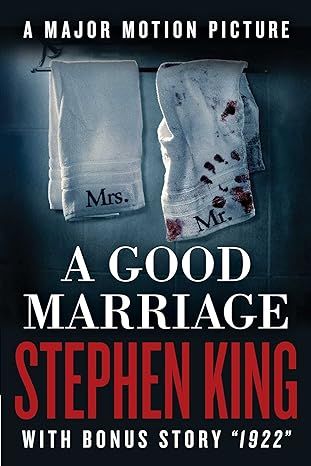
A Good Marriage
4.1
-
5,995
$4.99
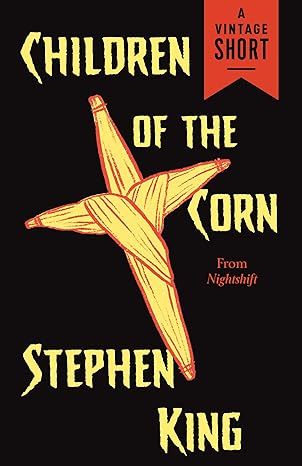
Children of the Corn (Kindle Single) (A Vintage Short)
4.3
-
1,084
$0.99
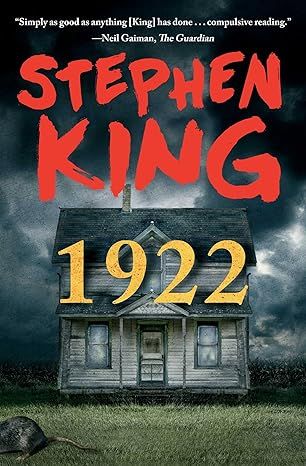
1922
4.6
-
6,082
$7.99
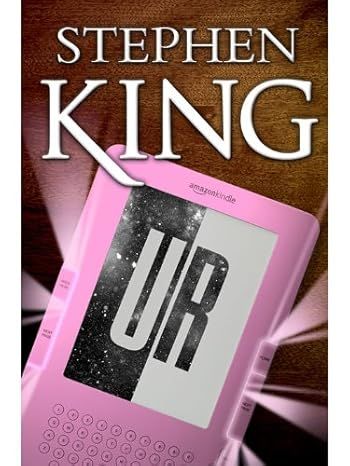
UR
4.3
-
6,140
$3.99
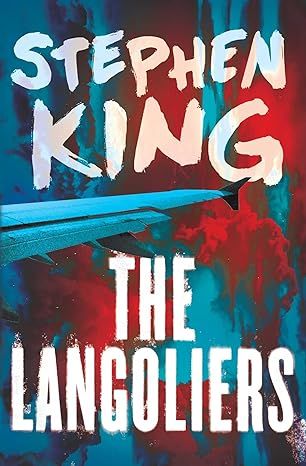
The Langoliers
4.6
-
1,014
$6.49
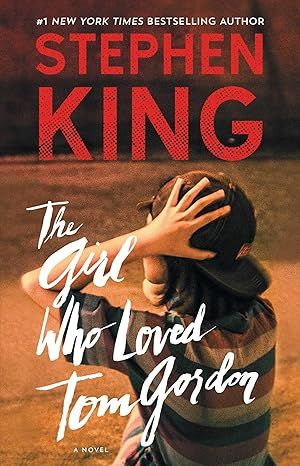
The Girl Who Loved Tom Gordon: A Novel
4.5
-
4,774
$1.17
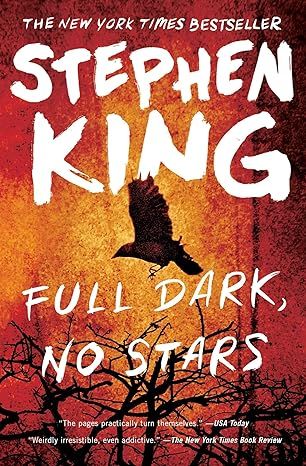
Full Dark, No Stars
4.6
-
6,762
$5.00
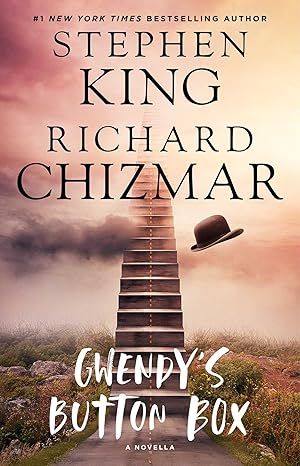
Gwendy's Button Box: A Novella (Gwendy's Button Box Trilogy Book 1)
4.5
-
21,335
$3.88
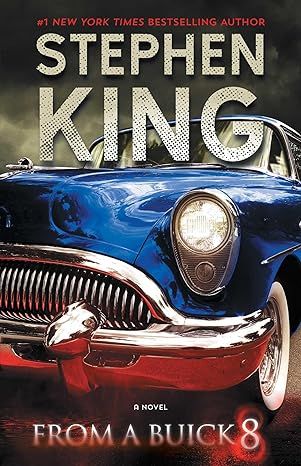
From a Buick 8: A Novel
4.3
-
2,174
$11.99
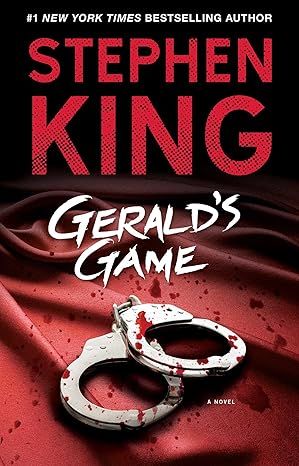
Gerald's Game
4.2
-
3,838
$1.97
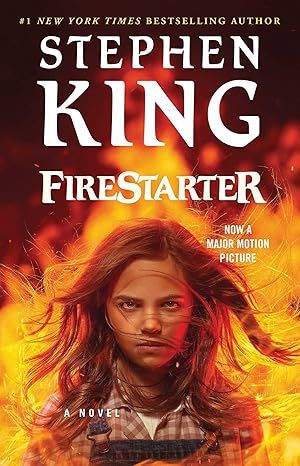
Firestarter
4.6
-
5,489
$9.99
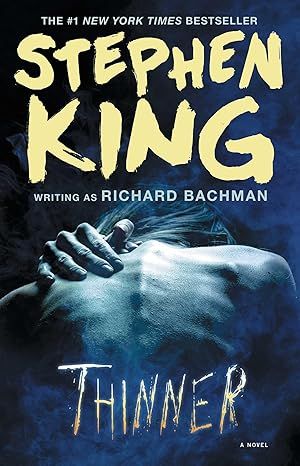
Thinner
4.5
-
3,107
$2.50
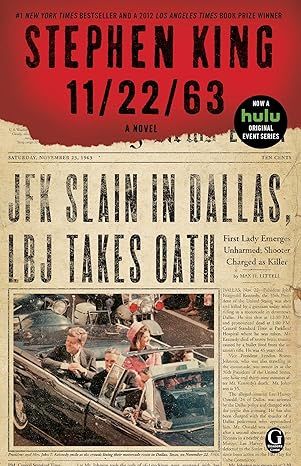
11/22/63: A Novel
4.6
-
11,307
$11.99
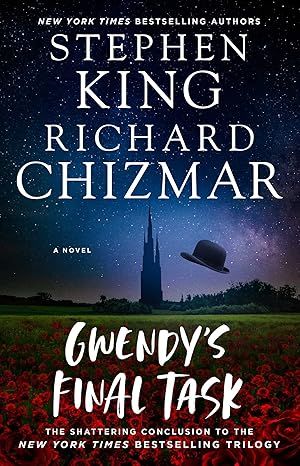
Gwendy's Final Task (3) (Gwendy's Button Box Trilogy)
4.6
-
8,788
$7.87
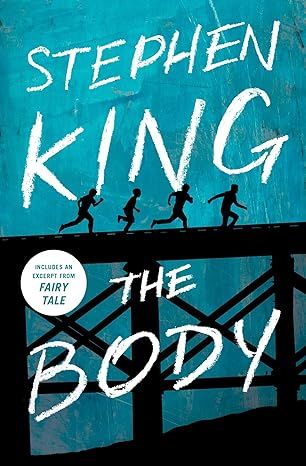
The Body
4.7
-
4,496
$10.48
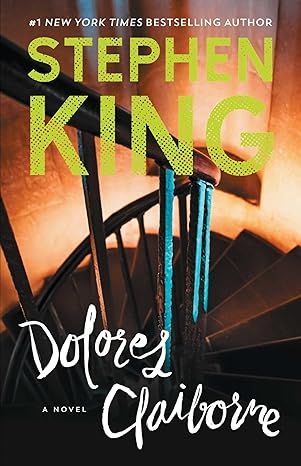
Dolores Claiborne: A Novel
4.6
-
4,436
$9.99
Best Sellers

The Tuscan Child
4.2
-
100,022
$8.39

The Thursday Murder Club: A Novel (A Thursday Murder Club Mystery)
4.3
-
155,575
$6.33

Sapiens: A Brief History of Humankind
4.6
-
140,302
$13.49

The Butterfly Garden (The Collector, 1)
4.3
-
88,556
$9.59

Things We Hide from the Light (Knockemout Series, 2)
4.4
-
94,890
$11.66

The Last Thing He Told Me: A Novel
4.3
-
154,085
$2.99

The Perfect Marriage: A Completely Gripping Psychological Suspense
4.3
-
143,196
$9.47

The Coworker
4.1
-
80,003
$13.48

First Lie Wins: A Novel (Random House Large Print)
4.3
-
54,062
$14.99

Mile High (Windy City Series Book 1)
4.4
-
59,745
$16.19

Layla
4.2
-
107,613
$8.99

The Locked Door
4.4
-
94,673
$8.53
